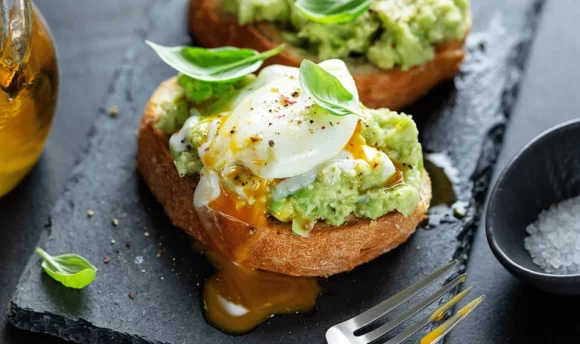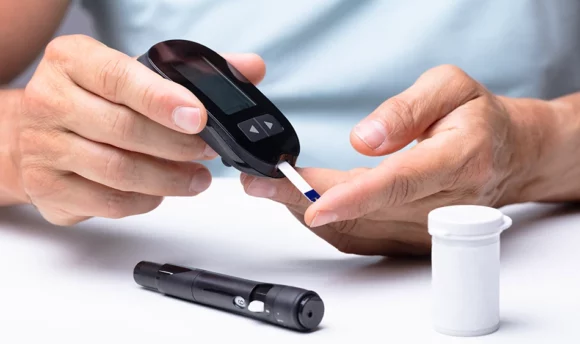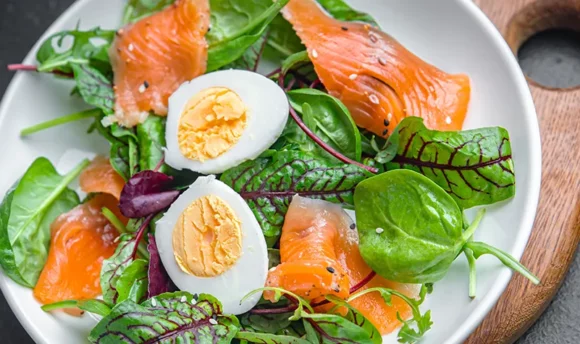Is Sucralose Keto, and Is It Safe?
Zero calorie artificial sweetener, called sucralose, is a very popular sugar substitute. Is it suitable while on keto?
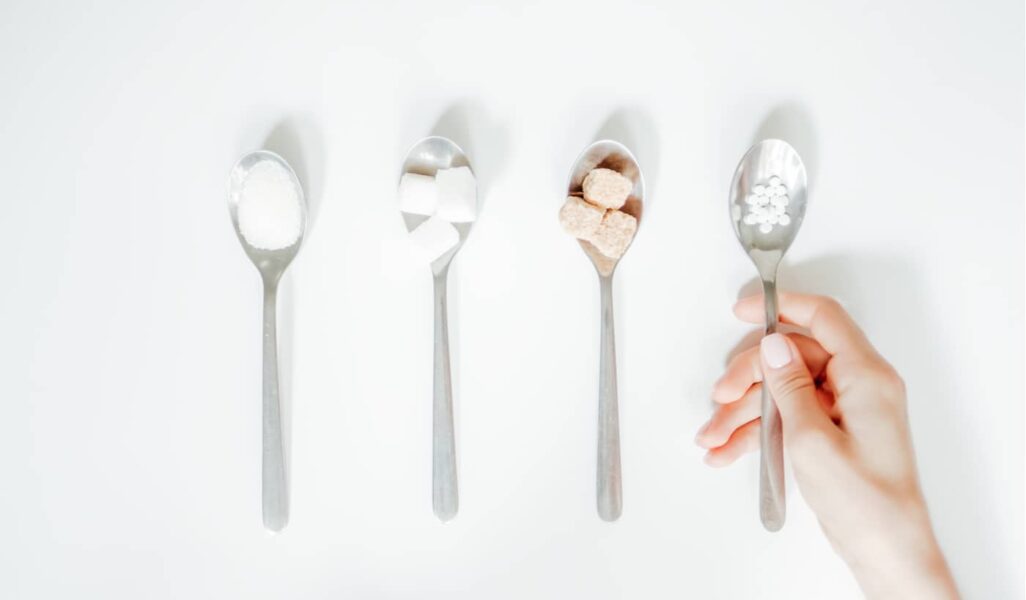
Since its launch in the 1990s, sucralose has emerged as one of the most popular artificial sweeteners around the globe. Commonly known by its brand name Splenda, it can help you cut down your calories without compromising on the great taste of your favorite drinks and dishes.
While sucralose itself is generally understood to be a keto-friendly sweetener, some studies claim that it can alter the gut flora and cause negative health implications. So, how healthy is sucralose, really? And how does it impact your ketogenic diet? The internet is full of conflicting information regarding the safety of sucralose.
In this article, you will learn all about the effects of sucralose, its safety from a scientific point of view, and whether it can be used in the ketogenic diet or not.
Is Sucralose Keto?
Sucralose may not be a healthy choice for those following a ketogenic diet.
There is a common misconception going around that sucralose is keto-friendly because of its low-calorie content and lack of carbohydrates. However, it often contains other additives, such as maltodextrin and dextrose, both of which are higher on the glycemic index than pure white sugar.
This means that some people may experience an increase in their blood glucose levels soon after eating something sweetened with sucralose. As a result, this spike in blood sugar levels can cause sudden feelings of hunger or a desire to eat more.
Recent research suggests that artificial sweeteners cannot activate food reward pathways in the same way as natural sweeteners do. The reward pathways describe our brain’s chemical processes when we eat food that satisfies us and makes us feel good.
This can lead to compensatory overeating and higher overall energy intake, which would likely be counter-productive if you are aiming to lose weight.
What Is Sucralose?
Sucralose is an artificial sweetener derived from table sugar. It looks and tastes nearly identical to sugar, but without any calories or net carbs. It can be obtained in different forms such as powder or liquid concentrate and is commonly used in baked goods, frozen desserts, beverages, chewing gum, candy, and more.
What’s more, sucralose is made by replacing three select hydrogen-oxygen groups in sugar molecules with chlorine atoms. This makes the molecules stable and resistant to breakdown by heat, gastric acids, and other biological processes.
As a result, sucralose doesn’t break down like natural sugars do when digested. In fact, most of it passes through your digestive system without being absorbed by your body. And, unlike sugar, which feeds the unfriendly bacteria that cause dental plaque buildup and cavities, it can’t be used as food by these bacteria.
Is sucralose a carbohydrate?
Pure sucralose is not a carbohydrate. It’s a non-nutritive sweetener. In other words, it does not contain any calories or carbs per serving.
However, sucralose manufacturers often combine it with fillers to help it measure, pour, and cook like sugar in its granulated form. This may add a trace of carbs to your food which could affect the total carbohydrate count.
That’s not all; sucralose can trigger insulin resistance when mixed with carbs, which can instigate weight gain. That’s why you should factor in the number of servings you use when determining carbs per day.
Can you have Splenda on keto?
When you’re on keto, choosing the right options can be a tough call.
Splenda is a popular artificial sweetener that contains sucralose as its main ingredient. Besides adding sweetness to your food and drinks, it contains two ingredients – dextrose and maltodextrin – that belong to a class of carbohydrates called “polyols,” or sugar alcohols.
In total, one packet of Splenda adds about 3 calories and 1 gram of carbs to your coffee, tea, or cereal. So, if you’re on keto and cap your carbs at 20–30 grams per day (or less), one packet of Splenda shouldn’t have too much of an impact on your carb count.
With that said, remember that less is more when it comes to Splenda. So use it sparingly and measure carefully to stay on track with your weight loss goals.
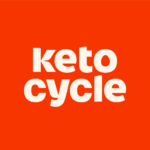
- Proven scientific data
- Calorie tracker
- Customized meal plans and food prep
- 10,000+ easy-to-make keto recipes (including vegetarian options)
- Full workout schedule
- Motivational tips
Is Sucralose Safe?
Sucralose has been rigorously studied for more than two decades and has been deemed safe by the FDA, based on more than 110 studies.
In fact, FDA states that a 132-pound adult could safely intake up to 23 packets of sucralose (Splenda) a day.
However, you should keep in mind that consuming too much of it might have negative impacts on your health. According to independent research by Advances in Nutrition, excess sucralose can impede normal intestinal bacteria, which may lead to problems like bloating, diarrhea, and stomach ache, among others.
Yet another study conducted at Iowa State University showed that sucralose might potentially form hazardous chemicals such as chloropropanols when heated to very high temperatures. These toxic byproducts have been associated with an increased risk of developing cancer, allergic reactions, gastrointestinal issues, and seizures.
As with other sweeteners, there isn’t enough safety data to recommend the use of sucralose by pregnant or nursing women, children, people with diabetes, or phenylketonuria (PKU). That’s why it is advised to consult your doctor before using any artificial sweeteners.
What Sweeteners Can You Use on Keto?
Try monk fruit or stevia.
Not all zero-calorie sweeteners are created equal. While sucralose and other artificial sweeteners are keto-friendly, they are often combined with fillers that may raise blood sugar levels and fuel sugar cravings, which, in turn, can prevent you from entering into ketosis!
On the contrary, natural zero-calorie sweeteners like monk fruit extract or stevia are much safer for people with diabetes and those on keto. They provide all of their sweetness with relatively fewer carbs, and they won’t cause your blood sugar to spike – all without hunger pangs or food cravings.
While monk fruit is a flavorful, plant-derived keto sweetener that is said to be 150 to 200 times sweeter than sugar, it is enriched with natural antioxidants called mogroside. These compounds are known for their ability to trigger the secretion of insulin – which can aid you immensely in controlling blood sugar levels.
Pure stevia, on the other hand, is derived from the stevia plant but without any added ingredients. Studies confirm that it is a no-carb, no-glycemic, and all-natural sweetener that performs better in controlling blood sugar in direct comparison to aspartame and sucralose.
What’s more, the active compounds are steviol glycosides, which have up to 150 times the sweetness of sugar, are heat-stable, pH-stable, and highly suitable for cooking and baking.
A Word From Nutritionist
Sucralose can be useful to add sweetness to low-carb meals, but it’s not worth ditching your diet for it. Use it in moderation with a healthy, balanced diet and active lifestyle, and make sure you track your sugar intake as you go along.
It’s also important to always read the labels and be mindful of where your calories are coming from. If you’re doubtful that a product may contain synthetic sweeteners, it is better to steer clear.
Last but not least, if you find yourself craving sugar more frequently on a keto diet (as many people do), then give your keto goals a second look – maybe starting with a carb-cycling or intermittent fasting approach will help.
Conclusion
While sucralose is deemed safe for human consumption, research suggests that it may increase certain blood sugar markers, inhibiting ketosis and weight loss. So, if you are asking the question, “Is sucralose keto?” – take caution when adding sucralose to your diet, especially if you have diabetes or insulin sensitivity.

















































 Select your language:
Select your language: 





